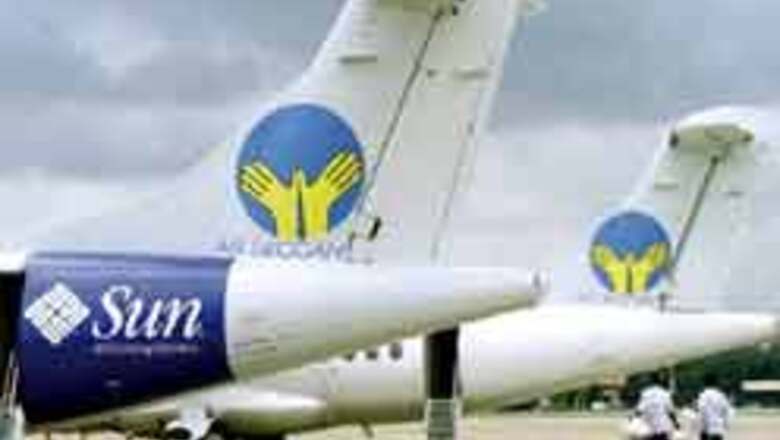
views
Mumbai: Deccan Aviation has become the first Indian Initial public Offering (IPO) to get extended. The issue has been subscribed 1.4 times.
An Initial Public Offering by discount carrier Deccan Aviation has struggled to find takers, raising questions on the viability of the low-cost airline model in an increasingly crowded market.
The decision was taken on Tuesday evening when the issue was not fully subscribed. But only after the extension it was known that the issue had been fully subscribed.
The issue had opened on May 18 when the Sensex crashed over 800 points and will now be extended till May 26.
Deccan, which launched its first flight in August 2003 with an ATR turboprop aircraft, has 30 planes flying to 55 destinations and just above 14 per cent of the domestic market.
It posted a net loss of 195 million rupees in the year to March 2005 on revenue of 3.2 billion rupees. Analysts estimate the company will turn a profit in 2007/08.
Growing competition:
The domestic aviation market - which saw nearly 25 million passengers in the year to March 2006 - is forecast to grow at about 20 per cent a year over the next five years, but is seeing increasing competition and infrastructure bottlenecks.
There are two other low-cost players in operation and others waiting to launch. Full-service carriers, including newcomer Kingfisher Airlines, are also engaged in a feisty fare war to gain share.
Budget carriers offer limited seats for as little as $5 as they look to woo millions of long-distance train passengers. "This is not a game of low fares, but low costs," said Parekh, who advised clients against subscribing to the issue.
"There's pressure on costs and yields... nearly 65 per cent of costs are fixed and common for full-service and low-cost carriers, so low-cost carriers are walking a tightrope," he said.
Deccan has saved costs by outsourcing non-core operations like ticketing and earned incremental revenue from selling food and beverages and advertising space, but rising fuel and staff costs and a lack of secondary airports are a serious hurdle.
Moreover, foreign carriers are not permitted to own a stake. Deccan had earlier held talks with Virgin Blue. But not everyone was pessimistic.
The market in the long-term looks attractive, said Kapil Kaul, head of the Centre for Asia-Pacific Aviation in India.
"The next two years will be hard, but infrastructure will improve, policies will become more amenable, yields will improve, and there will be a premium on low-cost carriers," he said. "It's just unfortunate that the timing is bad now," he said.
(With inputs from Reuters)



















Comments
0 comment